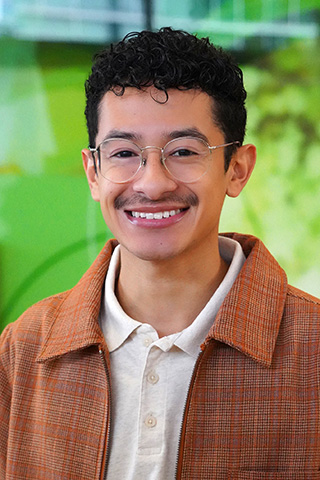Health Humanities and Bioethics
One of the essential qualities of the clinician is interest in humanity, for the secret of the care of the patient is in caring for the patient.
- Francis W. Peabody, M.D., Boston City Hospital, 1927
Welcome
Medicine is a science and an art. Caring for a patient is a professional and scientific practice; it is also a personal and profoundly human relationship for both the patient and the practitioner.
The practitioner must be able to understand the science of diseases and treatments, and attend to each patient's personal experience of illness as it is informed by unique values, beliefs and feelings within broader socio-cultural contexts. Further, the practitioner must also be able to consider his/her own personal values, beliefs, feelings regarding the patient and the broader context of the health professions.
The field of Health Humanities and Bioethics uses the perspectives and tools of humanities and arts disciplines to study the human contexts of healthcare. In the biopsychosocial tradition of healthcare education at Rochester, the program provides foundational training in this field. Students study humanities to consider interpersonal perspectives and sociocultural contexts of patients and caregivers, and to develop skills that can be applied directly to the practice and teaching of healthcare.
The program is administered through the University of Rochester School of Medicine and Dentistry. This is a full-time one year Master's in Science degree program (end of August – end of May) and is intended for students, trainees, professionals and scholars in:
- Healthcare Disciplines - medicine, nursing, dentistry, social work, and pastoral care, in allied health sciences occupational therapy, physical therapy, physician assistants to develop humanities-based knowledge and skills that can be applied to their clinical practice.
- Humanities and Social Science Disciplines - literature, history, visual arts, anthropology, performing arts, gender, cultural and religious studies who want to integrate aspects of medicine and patient care into their academic work and teaching.
- Gap Year or Bridging Year Students
- Download our fact sheet
What Our Students Have To Say
What Our Students Say...

The master’s in Medical Humanities program provided me with the opportunity to be challenged and grow both as a scholar and individual. The interdisciplinary nature of the program and department allowed me to explore and think critically about different areas of healthcare and medicine from history to research methods. Reflecting on my year in the program, it gave me the time and space to experience the balance of clinical, professional, and academic work I wanted to build my career out of. The MS program provides exposure and reflection upon the possibilities within health humanities as a career field.
The capstone project a part of the masters was a highlight of the program. I was able to combine different research methods with narrative medicine and the visual arts to produce a representation of the lived experience of the skin condition Vitiligo. Having the condition myself, the capstone project served as a year of navigating self-reflection and building self-awareness. Not only was I able to practice research skills, but also practice advocacy and have a project that was ready to be continued professionally.
- Alejandro Vera
MSc Alum
